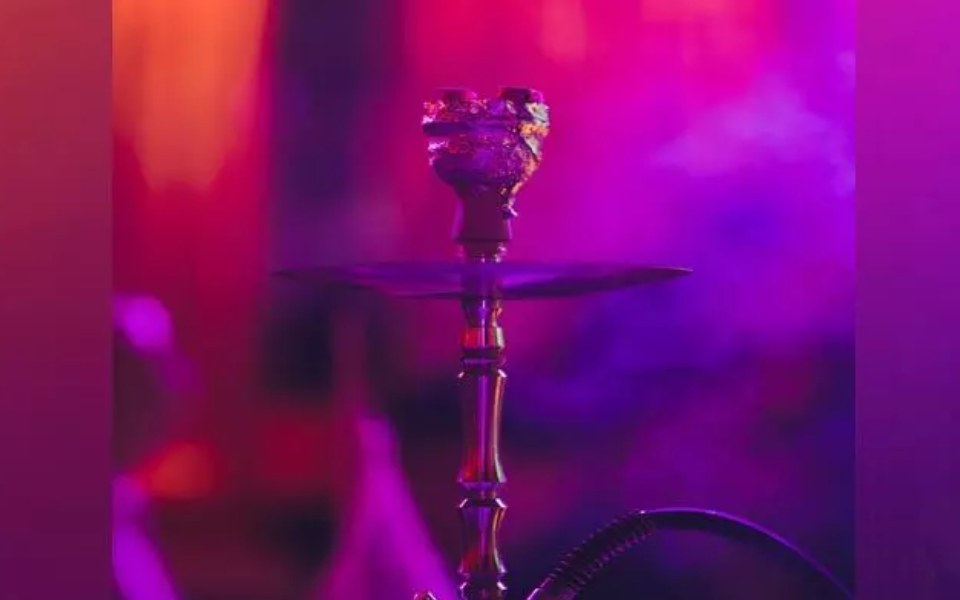Bengaluru: The Karnataka Health and Family Welfare Department on Wednesday issued orders placing a ban on the sale, consumption, advertisement, promotion, collection and trade of all types of hookah products in the state with immediate effect.
According to the department’s release, the ban extends to all hookah products, including tobacco or nicotine-containing hookah, non-nicotine variants, tobacco-free options, flavored and unflavored varieties, molasses, shisha, and similar products under different names.
The order directs action to be taken against violators under various regulations, including Cigarettes and Other Tobacco Products Act (COTPA)-2003, Child Care and Protection Act, 2015, Food Safety and Quality Act-2006, Karnataka Poisons (Possession and Sale) Rules 2015 and Indian Penal Code and Fire Control and Fire Safety Act.
ALSO READ: Shivamogga: Man stabbed for scolding boy for wheeling, rash driving on cycle
Highlighting the consumption of hookah in hotels, bars, and restaurants poses a risk to the safety of food items for public consumption and may have adverse effects on public health, the Department of Health and Family Welfare stated that, in accordance with Article 47 of the Constitution, it is the duty of the state government to protect public health. Subsequently the department ordered the ban in the interest of the people.
COTPA 2003 ಕಾಯ್ದೆ ಹಾಗೂ ಮಕ್ಕಳ ಆರೈಕೆ ಮತ್ತು ರಕ್ಷಣೆ ಕಾಯ್ದೆ 2015 ಅಡಿಯಲ್ಲಿ, ರಾಜ್ಯದಲ್ಲಿ ಎಲ್ಲಾ ಬಗ್ಗೆಯ ಹುಕ್ಕಾ ಉತ್ಪನ್ನಗಳ ಮಾರಾಟ, ಸೇವನೆ, ಜಾಹೀರಾತು, ಸೇವಿಸಲು ಪ್ರಚೋದನೆ, ಸಂಗ್ರಹಣೆ ನಿಷೇಧಿಸಿ ಆದೇಶ ಹೊರಡಿಸಲಾಗಿದೆ.
— K'taka Health Dept (@DHFWKA) February 7, 2024
ಉಲಂಘನೆ ಮಾಡಿದವರ ವಿರುದ್ಧ ಕಾನೂನಿನ ಪ್ರಕಾರ ಕಠಿಣ ಕ್ರಮ ಕೈಗೊಳ್ಳಲಾಗುವುದು.#HookahBan pic.twitter.com/8JtRmSr3Dv
Let the Truth be known. If you read VB and like VB, please be a VB Supporter and Help us deliver the Truth to one and all.
Panaji (PTI): As part of a crackdown against tourist establishments violating laws and safety norms in the aftermath of the Arpora fire tragedy, Goa authorities on Saturday sealed a renowned club at Vagator and revoked the fire department NOC of another club.
Cafe CO2 Goa, located on a cliff overlooking the Arabian Sea at Vagator beach in North Goa, was sealed. The move came two days after Goya Club, also in Vagator, was shut down for alleged violations of rules.
Elsewhere, campaigning for local body polls, AAP leader Arvind Kejriwal said the fire incident at Birch by Romeo Lane nightclub at Arpora, which claimed 25 lives on December 6, happened because the BJP government in the state was corrupt.
An inspection of Cafe CO2 Goa by a state government-appointed team revealed that the establishment, with a seating capacity of 250, did not possess a no-objection certificate (NOC) of the Fire and Emergency Services Department. The club, which sits atop Ozrant Cliff, also did not have structural stability, the team found.
The Fire and Emergency Services on Saturday also revoked the NOC issued to Diaz Pool Club and Bar at Anjuna as the fire extinguishers installed in the establishment were found to be inadequate, said divisional fire officer Shripad Gawas.
A notice was issued to Nitin Wadhwa, the partner of the club, he said in the order.
Campaigning at Chimbel village near Panaji in support of his party's Zilla Panchayat election candidate, Aam Aadmi Party leader Kejriwal said the nightclub fire at Arpora happened because of the "corruption of the Pramod Sawant-led state government."
"Why this fire incident happened? I read in the newspapers that the nightclub had no occupancy certificate, no building licence, no excise licence, no construction licence or trade licence. The entire club was illegal but still it was going on," he said.
"How could it go on? Couldn't Pramod Sawant or anyone else see it? I was told that hafta (bribe) was being paid," the former Delhi chief minister said.
A person can not work without bribing officials in the coastal state, Kejriwal said, alleging that officers, MLAs and even ministers are accepting bribes.





